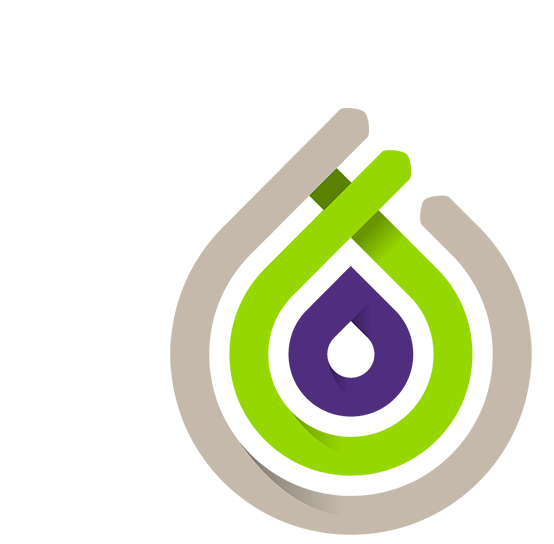-
 IFRS Navigating the changes to International Financial Reporting Standards (2024 edition)The 2024 edition of the publication has been updated for changes to International Financial Reporting Standards (IFRS) that were published between 1 January 2023 and 31 December 2023. The publication now covers 31 March 2023, 30 June 2023, 30 September 2023, 31 December 2023 and 31 March 2024 financial year ends.
IFRS Navigating the changes to International Financial Reporting Standards (2024 edition)The 2024 edition of the publication has been updated for changes to International Financial Reporting Standards (IFRS) that were published between 1 January 2023 and 31 December 2023. The publication now covers 31 March 2023, 30 June 2023, 30 September 2023, 31 December 2023 and 31 March 2024 financial year ends. -
 Our publications IFRS 16 - Prepare for lease accounting changesThe new IFRS 16: Leases standard has been issued by the IASB. The core principle of the new standard is that lessees should recognise all leases on their balance sheet.
Our publications IFRS 16 - Prepare for lease accounting changesThe new IFRS 16: Leases standard has been issued by the IASB. The core principle of the new standard is that lessees should recognise all leases on their balance sheet.
-
IT audit and advisory services
We help clients to navigate the complexities and provide you with robust independent assurance that your IT risks, key management priorities and core systems are being appropriately managed.
-
Co-sourced internal audit
We help clients to navigate the complexities and provide you with robust independent assurance that your IT risks, key management priorities and core systems are being appropriately managed.

-
Automotive
Advances in technology are increasing the risk of disruption in the market and existing players, both upstream and downstream, are taking note. They’re innovating. They are making more use of lightweight materials and alternative fuels and taking the first steps towards intelligent and connected vehicles.
-
Asset management
Increasing regulation and investor demands for returns and transparency have brought new challenges to the asset management sector. Within this new world, organisations with the operational agility and strong infrastructure to embrace change and innovation can maximise opportunities.
-
Insurance
In a market where businesses operate with a 30-year outlook change is rarely spectacular or sudden. Yet there’s no doubt that important shifts are underway in insurance.
-
Banking & securities
Grant Thornton’s global banking and securities team consists of country, regional and service line leaders with experience of supporting clients in more than 80 countries.
-
Technology
The ability to anticipate and adapt is more important in the technology industry than ever before.
-
Media
The media industry is in the grip of a technological revolution and it’s affecting every part of the business. Distribution models, commissioning procedures and revenue streams are all evolving as the industry responds to the shift to digital and personalisation. This has resulted in a flood of new channels, platforms and experiences, all of which have to be constantly fed with compelling, quality content. If they are not, audiences move on.
-
Telecommunications
The telecommunications industry is changing rapidly and facing pressure from all sides.
- 39% of senior management positions in African businesses are held by women, higher than global average of 31%
- 52% of African businesses believe that new working practices as a result of COVID-19 have enabled women in business to play greater leadership roles and 97% say they are taking action to ensure the engagement and inclusion of their employees against the negative backdrop of the pandemic
The number of women holding senior leadership positions in mid-market businesses globally has hit 31% despite the pandemic affecting economies around the world. 39% of senior management positions in African businesses are held by women, and this average has steadily risen from 23% (22% globally) in 2015 to 39% (31% globally) in 2021 despite the impact of the COVID-19 pandemic during 2020, according to Grant Thornton’s annual Women in Business report.
Kalyanaraman Vijay, Managing Partner of Grant Thornton Botswana says: “The continued increase of women in senior roles globally and in Africa is an important milestone for businesses, but not the end goal. Those businesses that want to reap the benefits of a better gender balance, must continue to take action to enable women to realise their ambitions, through and beyond the pandemic.”
Seeing the proportion of women leaders rise to 39% in African businesses (31% globally) is encouraging, given that it passes the important 30% threshold, which research1 shows is the minimum representation needed to change decision-making processes. All regions surveyed except for APAC (28%) have now surpassed the crucial 30% milestone. Another encouraging finding is the types of leadership roles women are occupying. Grant Thornton’s research reveals higher numbers of women across operational C-suite roles compared to last year, with the proportion of female CEOs up 4% to 26% (6% to 26% globally), female CFOs up 7% to 43% (6% to 36% globally), and female COOs up 3% to 23% (4% to 22% globally).
Additionally, 52% of African businesses (59% globally) believe that new working practices as a result of COVID-19 have enabled women in business to play greater leadership roles. Furthermore, 78% of African businesses (69% globally) agree that in their organisations, new working practices as a result of COVID-19 will benefit women’s career trajectories long-term, despite potentially hindering factors which may be down to the flexibility that remote working offers.
While the number of women in leadership roles has grown, questions remain over the impact of the COVID-19 pandemic on women, particularly working mothers. UN data shows that, before the pandemic, women did three times as much unpaid housework as men, and mounting evidence indicates that COVID-19 is only increasing this disparity – as well as adding the extra responsibilities of childcare and home schooling while schools are closed2.
Kalyanaraman Vijay says: “Reaching 39% certainly does represent progress – having grown from 25% 15 years ago when Grant Thornton first started tracking this, but these gains can easily be lost. Reassuringly, 97% of African businesses say they are taking action to ensure the engagement and inclusion of their employees against the negative backdrop of the pandemic and with the normalisation of remote working, employers are becoming ever more flexible about how, where and when employees do their jobs. Now more than ever, businesses need to stay focused on what is enabling women to progress to leadership positions, so that women move forward rather than back as a result of the global pandemic.”
1 Dahlerup, D. (2006). The Story of the Theory of Critical Mass. Politics & Gender, 2(4), 511-522. doi:10.1017/S1743923X0624114X
2 UN Women, Nov 2020
Read the full report
https://www.grantthornton.co.bw/insights/local-thought-leadership/women-in-business-2021
